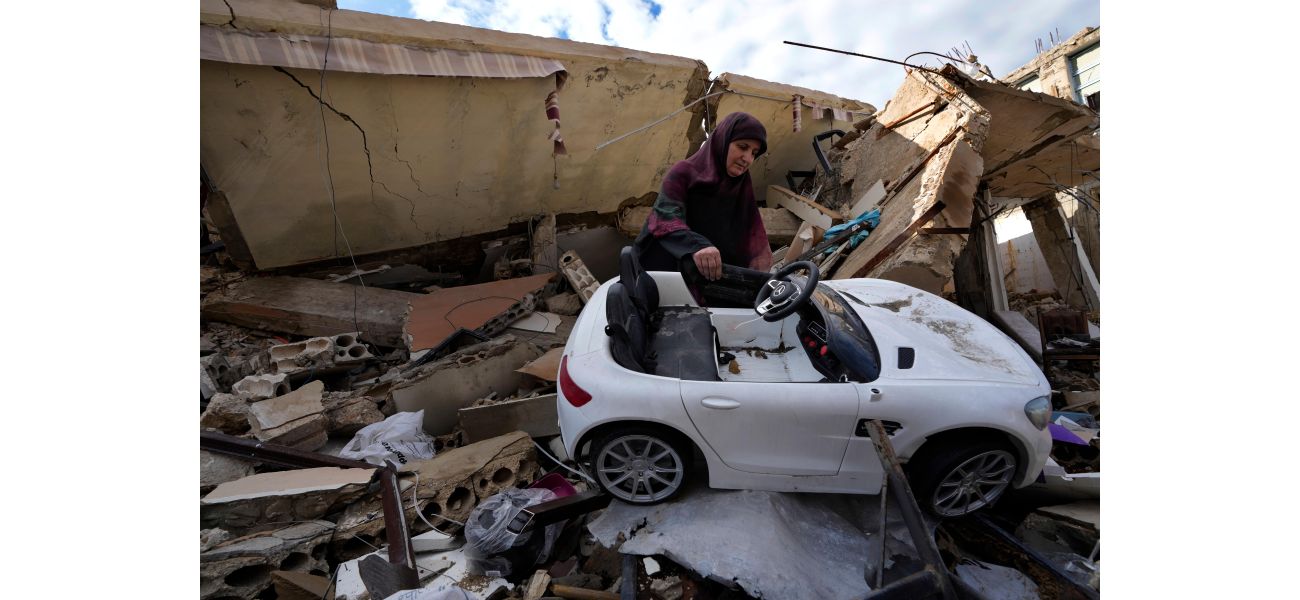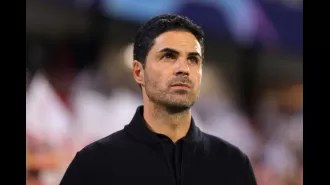The Israel-Hezbollah ceasefire remains stable, despite some breaches.
Israel and Hezbollah have maintained a fragile truce for over a month, despite doubts that the terms will be fulfilled on time.
January 4th 2025.

In the bustling city of Beirut, a ceasefire between Israel and Hezbollah has been holding for over a month now. This may come as a surprise to some, as the terms of the agreement seem unlikely to be fulfilled by the agreed-upon deadline.
The ceasefire, which was struck on Nov. 27th, required Hezbollah to immediately lay down their arms in southern Lebanon, while giving Israel a 60-day window to withdraw their forces and hand over control to the Lebanese army and U.N. peacekeepers.
However, Israel has only withdrawn from two of the many towns they occupy in southern Lebanon. They have also continued to launch strikes on what they claim are Hezbollah bases, accusing them of trying to move weapons before they can be confiscated and destroyed.
On the other hand, Hezbollah, who suffered greatly during the 14-month war, has threatened to resume fighting if Israel does not completely withdraw their forces by the 60-day deadline. Despite both sides accusing each other of violating the ceasefire, experts believe that the truce will hold, which is good news for the thousands of families displaced by the war who are still waiting to return to their homes.
According to Firas Maksad, a senior fellow at the Middle East Institute, the ceasefire agreement is quite vague and open to interpretation. This flexibility may actually increase its chances of holding, as it can adapt to changing circumstances, such as the recent ousting of Syrian leader Bashar Assad, just days after the ceasefire took effect.
Assad's removal has greatly weakened Hezbollah, as it was a crucial route for smuggling weapons from Iran. However, it is worth noting that Israel had already agreed to the U.S.-brokered ceasefire before this happened.
The conflict began on Oct. 8th, 2023, when Hezbollah started firing rockets into Israel, a day after Hamas launched a deadly attack that sparked the ongoing war in Gaza. Since then, over 4,000 people have been killed in Lebanon, including hundreds of civilians. The war also displaced over a million Lebanese people and forced 60,000 Israelis to flee their homes. In total, 76 people were killed in Israel, including 31 soldiers, and almost 50 Israeli soldiers lost their lives during operations in Lebanon.
Now, let's take a closer look at the terms of the ceasefire and its potential to end hostilities in the long run.
The agreement states that both sides must cease offensive military actions, but can act in self-defense, although the exact definition of "self-defense" is not clear. The Lebanese army has been given the responsibility of preventing Hezbollah and other fighter groups from launching attacks into Israel. They are also required to dismantle Hezbollah facilities and weapons in southern Lebanon, with the possibility of expanding these efforts to other areas in the future. The United States, France, Israel, Lebanon, and the U.N. peacekeeping force known as UNIFIL are all responsible for overseeing the implementation of the ceasefire.
As Firas Maksad pointed out, the crucial question is not whether the deal will hold, but rather, which version of the agreement will be put into action.
So far, Hezbollah has mostly stopped launching rockets and drones into Israel, and Israel has ceased attacking them in most parts of Lebanon. However, Israel has continued to carry out airstrikes on what they claim are fighter sites in southern Lebanon and the Bekaa Valley.
The withdrawal of Israeli forces from Lebanese towns has been slower than expected, as there is a lack of Lebanese army troops ready to take over. Israel claims this is the reason for the delay, while Lebanon argues that they are waiting for Israel to withdraw before entering these towns. According to the International Organization for Migration, Israeli troops still occupy around 60 towns, and approximately 160,000 Lebanese people are still displaced.
Lebanon has accused Israel of repeatedly violating the ceasefire and has submitted a complaint to the U.N. Security Council, stating that Israel launched over 816 ground and air attacks between the start of the ceasefire and Dec. 22nd, 2024. They claim that these attacks have hindered the Lebanese army's efforts to deploy in the south and fulfill their end of the agreement.
On the other hand, Israel has also filed a complaint with the Security Council, accusing Hezbollah of violating the ceasefire hundreds of times. They claim that Hezbollah has been moving ammunition, attempting to attack Israeli soldiers, and preparing and launching rockets towards northern Israel.
Until they hand over control of more towns to the Lebanese army, Israeli troops have been destroying Hezbollah infrastructure, including weapons warehouses and underground tunnels. Lebanese authorities have also reported that Israel has destroyed civilian houses and infrastructure.
What happens when the 60-day ceasefire period is over? According to Lt. Col. Nadav Shoshani, a military spokesperson, Israel's withdrawal from Lebanese towns has been slower than expected because there are not enough Lebanese troops ready to take over. However, Lebanon disputes this and claims that they are waiting for Israel to withdraw before entering these towns.
Shoshani stated that Israel is satisfied with the Lebanese army's control in the areas they have already withdrawn from, and while they would prefer a quicker transfer of power, their top priority is security.
Harel Chorev, an expert on Israel-Lebanon relations, estimates that Lebanon will need to recruit and deploy thousands more troops before Israel is ready to hand over control. He also stated that Israel does not consider the 60-day timetable for withdrawal to be "sacred."
Hezbollah has warned that if Israeli forces remain in Lebanon 60 days past the start of the ceasefire, they may resume attacks. However, on Wednesday, Hezbollah Secretary General Naim Kassem stated that, for now, they are giving the Lebanese state a chance to take responsibility for enforcing the agreement. In a speech on Saturday, he took a more threatening tone, stating that their patience may run out before or after the 60 days and that when they decide to take action, it will be evident.
During the final two months of the war, Hezbollah suffered significant losses to its leadership, weapons, and forces due to Israeli airstrikes and a ground invasion. The fall of Assad was another major setback for them.
According to Firas Maksad, the power imbalance suggests that Israel may want more freedom to act after the 60-day period. On the other hand, Hezbollah, in their weakened state, has a strong interest in ensuring that the ceasefire holds, despite Israel's violations.
Even if Hezbollah is not in a position to engage in open war with Israel, they or other groups could still launch guerrilla attacks using light weaponry if Israeli troops remain in southern Lebanon. Former Lebanese army Gen. Hassan Jouni also stressed that even if Israel withdraws all of their ground forces, they could continue to carry out sporadic airstrikes, as they have done in Syria for years.
The ceasefire, which was struck on Nov. 27th, required Hezbollah to immediately lay down their arms in southern Lebanon, while giving Israel a 60-day window to withdraw their forces and hand over control to the Lebanese army and U.N. peacekeepers.
However, Israel has only withdrawn from two of the many towns they occupy in southern Lebanon. They have also continued to launch strikes on what they claim are Hezbollah bases, accusing them of trying to move weapons before they can be confiscated and destroyed.
On the other hand, Hezbollah, who suffered greatly during the 14-month war, has threatened to resume fighting if Israel does not completely withdraw their forces by the 60-day deadline. Despite both sides accusing each other of violating the ceasefire, experts believe that the truce will hold, which is good news for the thousands of families displaced by the war who are still waiting to return to their homes.
According to Firas Maksad, a senior fellow at the Middle East Institute, the ceasefire agreement is quite vague and open to interpretation. This flexibility may actually increase its chances of holding, as it can adapt to changing circumstances, such as the recent ousting of Syrian leader Bashar Assad, just days after the ceasefire took effect.
Assad's removal has greatly weakened Hezbollah, as it was a crucial route for smuggling weapons from Iran. However, it is worth noting that Israel had already agreed to the U.S.-brokered ceasefire before this happened.
The conflict began on Oct. 8th, 2023, when Hezbollah started firing rockets into Israel, a day after Hamas launched a deadly attack that sparked the ongoing war in Gaza. Since then, over 4,000 people have been killed in Lebanon, including hundreds of civilians. The war also displaced over a million Lebanese people and forced 60,000 Israelis to flee their homes. In total, 76 people were killed in Israel, including 31 soldiers, and almost 50 Israeli soldiers lost their lives during operations in Lebanon.
Now, let's take a closer look at the terms of the ceasefire and its potential to end hostilities in the long run.
The agreement states that both sides must cease offensive military actions, but can act in self-defense, although the exact definition of "self-defense" is not clear. The Lebanese army has been given the responsibility of preventing Hezbollah and other fighter groups from launching attacks into Israel. They are also required to dismantle Hezbollah facilities and weapons in southern Lebanon, with the possibility of expanding these efforts to other areas in the future. The United States, France, Israel, Lebanon, and the U.N. peacekeeping force known as UNIFIL are all responsible for overseeing the implementation of the ceasefire.
As Firas Maksad pointed out, the crucial question is not whether the deal will hold, but rather, which version of the agreement will be put into action.
So far, Hezbollah has mostly stopped launching rockets and drones into Israel, and Israel has ceased attacking them in most parts of Lebanon. However, Israel has continued to carry out airstrikes on what they claim are fighter sites in southern Lebanon and the Bekaa Valley.
The withdrawal of Israeli forces from Lebanese towns has been slower than expected, as there is a lack of Lebanese army troops ready to take over. Israel claims this is the reason for the delay, while Lebanon argues that they are waiting for Israel to withdraw before entering these towns. According to the International Organization for Migration, Israeli troops still occupy around 60 towns, and approximately 160,000 Lebanese people are still displaced.
Lebanon has accused Israel of repeatedly violating the ceasefire and has submitted a complaint to the U.N. Security Council, stating that Israel launched over 816 ground and air attacks between the start of the ceasefire and Dec. 22nd, 2024. They claim that these attacks have hindered the Lebanese army's efforts to deploy in the south and fulfill their end of the agreement.
On the other hand, Israel has also filed a complaint with the Security Council, accusing Hezbollah of violating the ceasefire hundreds of times. They claim that Hezbollah has been moving ammunition, attempting to attack Israeli soldiers, and preparing and launching rockets towards northern Israel.
Until they hand over control of more towns to the Lebanese army, Israeli troops have been destroying Hezbollah infrastructure, including weapons warehouses and underground tunnels. Lebanese authorities have also reported that Israel has destroyed civilian houses and infrastructure.
What happens when the 60-day ceasefire period is over? According to Lt. Col. Nadav Shoshani, a military spokesperson, Israel's withdrawal from Lebanese towns has been slower than expected because there are not enough Lebanese troops ready to take over. However, Lebanon disputes this and claims that they are waiting for Israel to withdraw before entering these towns.
Shoshani stated that Israel is satisfied with the Lebanese army's control in the areas they have already withdrawn from, and while they would prefer a quicker transfer of power, their top priority is security.
Harel Chorev, an expert on Israel-Lebanon relations, estimates that Lebanon will need to recruit and deploy thousands more troops before Israel is ready to hand over control. He also stated that Israel does not consider the 60-day timetable for withdrawal to be "sacred."
Hezbollah has warned that if Israeli forces remain in Lebanon 60 days past the start of the ceasefire, they may resume attacks. However, on Wednesday, Hezbollah Secretary General Naim Kassem stated that, for now, they are giving the Lebanese state a chance to take responsibility for enforcing the agreement. In a speech on Saturday, he took a more threatening tone, stating that their patience may run out before or after the 60 days and that when they decide to take action, it will be evident.
During the final two months of the war, Hezbollah suffered significant losses to its leadership, weapons, and forces due to Israeli airstrikes and a ground invasion. The fall of Assad was another major setback for them.
According to Firas Maksad, the power imbalance suggests that Israel may want more freedom to act after the 60-day period. On the other hand, Hezbollah, in their weakened state, has a strong interest in ensuring that the ceasefire holds, despite Israel's violations.
Even if Hezbollah is not in a position to engage in open war with Israel, they or other groups could still launch guerrilla attacks using light weaponry if Israeli troops remain in southern Lebanon. Former Lebanese army Gen. Hassan Jouni also stressed that even if Israel withdraws all of their ground forces, they could continue to carry out sporadic airstrikes, as they have done in Syria for years.
[This article has been trending online recently and has been generated with AI. Your feed is customized.]
[Generative AI is experimental.]
0
0
Submit Comment





